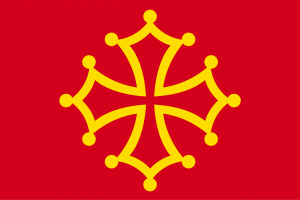Language/Occitan-post-1500/Vocabulary/Family
Hi Occitan (post 1500) learners! 😊
In this lesson, we will learn about family members in Occitan (post 1500) and how to use them in a sentence. The family is an essential part of our lives, and it is useful to know basic vocabulary to communicate with others. We will also include cultural information and interesting facts to enrich your knowledge of Occitan (post 1500) culture. Don't hesitate to use the Find native speakers link and ask them any questions you may have. Let's get started with the lesson!
Family Members in Occitan (post 1500)[edit | edit source]
Here are the basic family members in Occitan (post 1500) with their pronunciation and English translations:
| Occitan (post 1500) | Pronunciation | English Translation |
|---|---|---|
| La familha | la famiʎo | Family |
| La mare | la maʁe | Mother |
| Lo paire | lu paʁe | Father |
| Lo fraire | lu fraʁe | Brother |
| La sòrre | la sɔʁe | Sister |
| La filha | la filjo | Daughter |
| Lo filh | lu fiʎ | Son |
| L'oncle | lɔnkle | Uncle |
| La tanta | la tɔnto | Aunt |
| La nevada | la nevado | Niece |
| Lo nebot | lu nɛbu | Nephew |
Interesting Fact[edit | edit source]
In Occitan (post 1500), the word for "uncle" can also be used for other male members of the family or close friends who are older than you.
Dialogue[edit | edit source]
Here is a dialogue to help you understand how to use these family members in context:
- Person 1: Salut, que fas ? (Hi, what are you doing?)
- Person 2: Pauc, parli amb ma soleta. (Not much, talking with my sister.)
- Person 1: E la teva mare ? (And your mother?)
- Person 2: La familha estot tota aqui. (The whole family is here.)
Extended Family[edit | edit source]
Now that we have learned the basic family members, let's move on to the extended family. Here are some of the most common extended family members in Occitan (post 1500):
| Occitan (post 1500) | Pronunciation | English Translation |
|---|---|---|
| La grand-mare | la ɡrand maʀe | Grandmother |
| Lo grand-paire | lu ɡrandpaʀe | Grandfather |
| La miaire | la maɪr | Mother-in-law |
| Lo siaire | lu sɪr | Father-in-law |
| Lo cunhat | lu kynat | Brother-in-law |
| La cunhada | la kuɲado | Sister-in-law |
Interesting Fact[edit | edit source]
Traditionally, Occitan (post 1500) families were patriarchal, with the father being the head of the household. However, modern Occitan (post 1500) families are more egalitarian and have both parents as equals in the family dynamic.
Examples[edit | edit source]
To help you understand how to use these extended family members, here are some examples of how to use them in a sentence:
- La miaire del mon marit es una persona amabla. (My mother-in-law is a kind person.)
- La cunhada de ma fraire es una bona amiga. (My sister-in-law is a good friend.)
Conclusion[edit | edit source]
In conclusion, family members are an essential part of our lives, and knowing basic vocabulary to communicate with others is necessary. We hope this lesson has helped you improve your Occitan (post 1500) vocabulary. Remember to use the Polyglot Club website to practice with native speakers and improve your skills. Don't hesitate to edit this wiki page if you think it can be improved. 😎
➡ If you have any questions, please ask them in the comments section below.
➡ Feel free to edit this wiki page if you think it can be improved. 😎
Sources[edit | edit source]
With this lesson finished, you may want to explore these additional pages: People in Occitan, Days of the Week, Animals & Colors.

